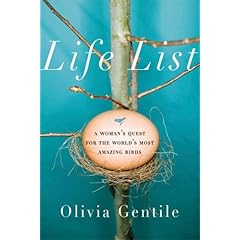Between The Known World, Wench, and Mrs. Woolf and the Servants, I have spent many, many hours of 2010 imagining slavery and servitude. Let me be very clear in saying that I in no way conflate one with the other. The idea of humans owning other humans is shudderingly abhorrent.
Nonetheless, and among many other things in their books, Alison Light, Dolen Perkins-Valdez, and Edward P. Jones all ask us to focus our imaginations on a small, domestic interior with two women, a master and a servant or slave, and the intense, fraught power relations contained within the smallest gestures. These scenes—in which a slave in The Known World backs up against the wall as she listens to an older woman lecture her newly widowed daughter on the folly of freeing her slaves, in which an infertile mistress fawns over her husband’s children by a slave while the mother must look on stoically—helped me better understand a much more benign but also beloved pair of scenes in Mrs. Dalloway in which Lucy, the beloved maid, and Clarissa, bicker in gestures—that’s the best way I can think to describe it, for no words are exchanged:
And Lucy, coming into the drawing-room with her tray held out, put the giant candlesticks on the mantelpiece, the silver casket in the middle, turned the crystal dolphin towards the clock.
and then, many pages later...
"And how," she said, turning the crystal dolphin to stand straight, "how did you enjoy the play last night? "
Now, the scenes I referenced from Jones and Perkins-Valdez are grand in their significance; this one is in more of a minor key. Even so, through that crystal dolphin—a little gift to Vanessa, whose nickname was Dolphin—signifies the rigidity of the power dynamic between servant and mistress. Lucy likes working for Clarissa and she swells with pride at the thought of how much Clarissa’s guests will enjoy the party. Turning the crystal dolphin is an act of creativity or rebellion, perhaps, but when Clarissa turns it back straight, it’s not a conversation: it’s a power play. The mistress wins.
It’s really Alison Light who reminded me of this detail, for she found a fragment in the Monk's House Papers in Sussex which document Woolf’s own observation of the phenomenon:
“But in Bloomsbury the servants were not victims or drudges, and Woolf noted that even her char moved an ornament on the mantelpiece at Monk’s House to leave it ‘askew’ each day, a symptomatic act which, Woolf imagined, showed the desire for ornament and her thirst for art (it might equally have been an assertion of independence” (151)
I will only add that we hire a woman to come clean—every other week—and one of the first things I do when she leaves is to adjust all the ornaments that she has moved while dusting. I mean no insult in observing that she has a particularly rigid sense of symmetry. My aesthetic is, like Lucy’s, more askew.







